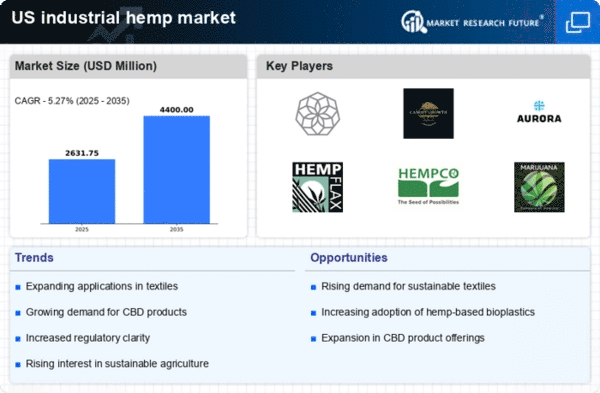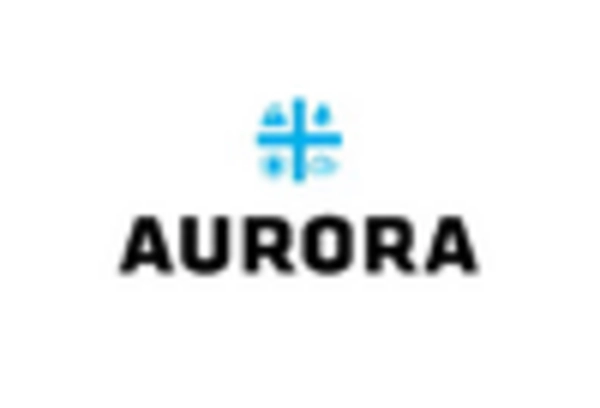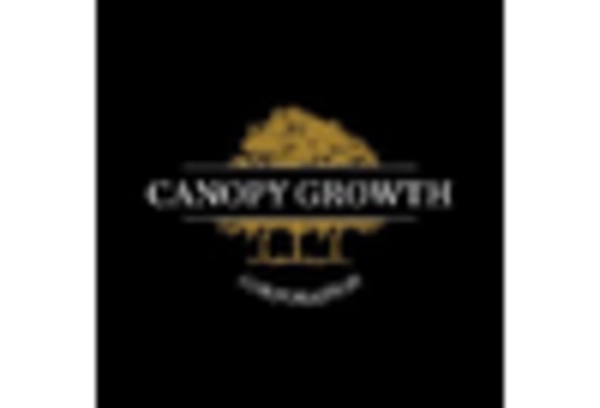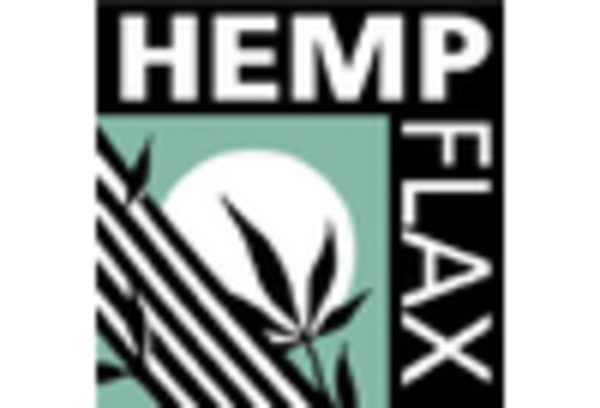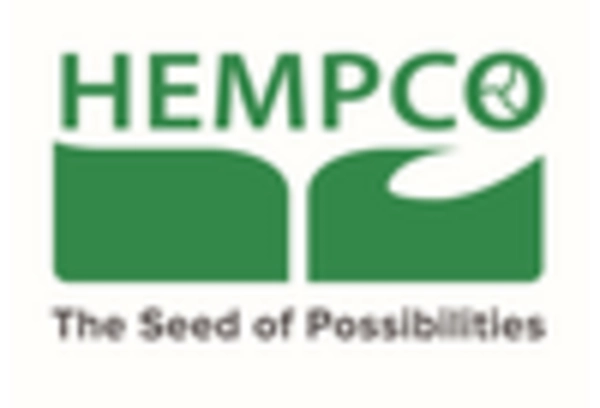Favorable Legislative Environment
The industrial hemp market is benefiting from a favorable legislative environment that supports the cultivation and commercialization of hemp. Recent legislative changes have legalized hemp production in various states, leading to an increase in the number of licensed growers. As of November 2025, over 40 states have enacted laws that facilitate hemp farming, contributing to a projected market growth of 15% annually. This supportive regulatory framework not only encourages farmers to enter the industrial hemp market but also attracts investors looking to capitalize on the emerging opportunities. The alignment of legislation with market needs is likely to enhance the overall growth trajectory of the industrial hemp market.
Expansion of Industrial Applications
The industrial hemp market is experiencing an expansion in its applications across various industries, including automotive, construction, and biocomposites. Hemp's unique properties, such as strength and lightweight characteristics, make it an attractive alternative for manufacturers seeking sustainable materials. In 2025, the market for industrial hemp in the automotive sector is projected to reach $500 million, driven by the increasing demand for eco-friendly components. This diversification of applications not only enhances the market's resilience but also opens new avenues for growth. As industries continue to seek sustainable solutions, the industrial hemp market is poised to play a vital role in meeting these evolving demands.
Growing Demand for Hemp-Based Products
The industrial hemp market is experiencing a notable surge in demand for hemp-derived products, including textiles, food, and personal care items. This trend is driven by increasing consumer awareness regarding the benefits of hemp, which is perceived as a sustainable alternative to conventional materials. In 2025, the market for hemp-based textiles alone is projected to reach approximately $1.5 billion, reflecting a growth rate of around 20% annually. The versatility of industrial hemp allows it to be utilized in various sectors, thereby expanding its market reach. As consumers increasingly prioritize eco-friendly products, the industrial hemp market is likely to benefit from this shift in purchasing behavior, further solidifying its position in the marketplace.
Increased Awareness of Health Benefits
The industrial hemp market is witnessing a rise in consumer awareness regarding the health benefits associated with hemp-derived products, particularly CBD. As more individuals seek natural alternatives for wellness, the demand for CBD-infused products is escalating. In 2025, the market for CBD products derived from industrial hemp is expected to reach $4 billion, reflecting a compound annual growth rate of 25%. This growing interest in health and wellness is driving consumers to explore the potential therapeutic properties of hemp, thereby expanding the market. The industrial hemp market is likely to continue capitalizing on this trend as consumers increasingly prioritize health-conscious choices.
Investment in Research and Development
Investment in research and development (R&D) within the industrial hemp market is crucial for driving innovation and enhancing product offerings. Companies are increasingly allocating resources to explore new applications of hemp, such as bioplastics and construction materials. In 2025, R&D spending in the industrial hemp market is estimated to exceed $200 million, indicating a robust commitment to advancing the industry. This investment not only fosters technological advancements but also supports the development of high-quality products that meet consumer demands. As the industrial hemp market continues to evolve, R&D will play a pivotal role in unlocking new opportunities and ensuring competitiveness in a rapidly changing landscape.


